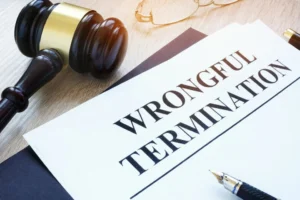Whether a person is charged with a felony or a misdemeanor, the defendant must always observe all judge and bail bonds firm requirements to remain safe in pretrial. After a missed court hearing, the bail bond agent will attempt to reschedule the hearing and bring you to the rescheduled date. A bail bond agency can also reach an agreement with the judge to not reschedule your court date and return you to jail as soon as feasible. Bail jumping is failure to appear in court, forfeiting a bond, and failing to surrender within a set number of days. Bail forfeiture is just one of the consequences of being a no-show. Bail jumping is a criminal in several states if you are facing a felony charge. Let’s the consequences of bail jumping in Wisconsin in this post.
Failure to appear in court after bailing out of jail violates not just a court order but also constitutes a distinct offense under state and federal law. As a result, defendants who “jump bail” may face a variety of penalties, including:
- forfeiture of their bond (the amount they paid for bail)
- enduring the pending criminal charges, and
- Facing extra charges for bail jumping.
Because this is a separate violation, the defendant’s innocence in relation to the accusations that led to his detention is usually not a defense to his failure to appear.
What is Bail Jumping?
Bail jumping is charged when the bond restrictions are broken. For example, if you are accused of a crime involving guns or other weapons, one of your bond terms would almost certainly state that you are not to possess any dangerous weapons. If you are found to be in possession of a deadly weapon while on bond, you may be charged with bail jumping.
What Can I Be Charged With If I Jump Bail?
Even if you are proven to be innocent of the initial allegations, your innocence will not protect you from bail jumping charges. If you are in contempt of court, the judge may issue a bench warrant for your arrest. A bench warrant allows you to be arrested and transported to jail at any moment.
Bail jumping is a criminal in several states if you are facing felony charges. It is an offense in many states, regardless of your charges. There are also several forms of bail jumping accusations. If you violate your bail conditions for a misdemeanor, you will face different charges than if you violate your bail conditions for a felony.
How Can I Protect Myself From Bail Jumping Charge?
The prosecution must prove that you knowingly and purposefully disregarded a court date in order to charge you with bail jumping. It accomplishes this by demonstrating that you were given notice of the court date. Notice can be given in a variety of methods, including:
- The sheriff serves the notice.
- A private process server serves the notice.
- Notice was served in the form of a letter sent by certified mail.
- Notice was given in the form of a bail bond.
If it can be demonstrated that you had sufficient notice of a court date but did not present, you may be able to defend yourself by demonstrating that circumstances beyond your control prevented you from appearing.
What Are Some Valid Excuses For Jumping Bail?
Unless you are in the hospital, illness may not be considered a credible defense. In addition, being detained in another jurisdiction may not be a viable defense. However, if you can convincingly demonstrate that you were a victim of circumstances in one of these cases or something comparable, you may be successful. Wherever possible, you must provide documents to support your absence:
- A child who is ill
- Hurricane
- The heart attack
- Accident in a car
- Kidnapping
- Previously planned court date
- Bereavement of a loved one
- Hospitalization
Bail Jumping: Crime and Punishment
The offense is defined differently in each state, as are the punishments. (It may also be referred to as criminal failure to appear, release violation, or crime of nonappearance.)
- Crime: In certain places, bail jumping is defined as a defendant failing to appear in court (thus forfeiting bond) and then failing to surrender within a set time frame. In these states, a defendant may have 30 days after bail forfeiture to surrender before criminal charges are filed. Failure to appear without good cause is a criminal in some states, and there is no grace period. Certain states consider bail jumping a violation only when the person faces felony charges in the pending case, whilst others consider any charge sufficient.
- Penalty: In many places, the penalty for bail jumping is linked to the underlying crimes. For example, the legislation may impose a misdemeanor punishment when the underlying charges are misdemeanors and a felony penalty when the underlying charges are felonies. Alternatively, a state may define several levels of bail jumping within the misdemeanor and felony categories. Furthermore, some states adopt direct sanctions, which means that all bail jumping charges are punished the same way.
Is Bail Jumping Considered a Felony or a Misdemeanor In Wisconsin?
It is important to examine if your bail jumping charge in Wisconsin is a misdemeanor or a felony, as well as where you will be accused. If the bond restrictions were imposed in a felony case, the charges will also be a felony. If they were charged with a crime, the bail jumping charge will also be a misdemeanor. In terms of where the bail jumping will be charged, it can be in the county where you are currently facing charges or in the county where you did the bail jumping.
What if I Unintentionally Violated Bail?
The State must prove that a person intentionally failed to comply with the terms of the bail-in order to prove a charge. They cannot prove a charge of bail jumping if they cannot prove that whatever activity violated bail was taken purposefully to breach the terms of bail.
Is There a Legal Justification for Bail Jumping In Wisconsin?
A person cannot willfully and purposefully violate the terms of their bond. If a person is unaware of these terms or does not knowingly violate them, they have not committed the offense of bail jumping. Depending on the unique facts of the case, there may be some positive defense possibilities to bail jumping as well.
Can a Defendant Leave Wisconsin If Charged With a Felony OWI?
In general, bail restrictions on felony OWI charges do not prevent a person from leaving Wisconsin. However, bail restrictions oblige the offender to appear in court for all scheduled court appearances. In addition, a person charged with felony OWI may face a travel limitation imposed by the court. As a result, it is critical to evaluate the precise bail conditions in your case to establish whether you can legally leave Wisconsin while on bail for a felony OWI.
Is It Possible to Get a Bond for Bail Jumping in Wisconsin?
If you are charged, you will appear in front of a judge who will establish bail and bail terms that you must follow in order to be freed from jail while your case is being heard.
What if You Commit a Felony While on Bail in Wisconsin?
A person accused of committing a felony while on bail in Wisconsin may face a slew of new challenges. You could face bail jumping charges in addition to fresh charges for whatever new crime you committed. If you were on bail for a minor violation, you will be charged with misdemeanor bail jumping, which carries a maximum sentence of 9 months in jail and a $10,000 fine. If you were on bail for a felony offense when you committed a new offense, you will be charged with felony bail jumping. Felony bail jumping is a Class H felony punishable by up to 6 years in jail, a $10,000 fine, or both.
Read Also: How Long Does Felony Stay On Your Record – FAQs
Do You Get Drug Tested if You’re Out on a Signature Bail in Wisconsin?
The conditions of the bond established by the judge or commissioner in your case will determine whether you must submit to drug testing while out on a signature bond. If the court makes compliance with pre-trial monitoring a condition of bond, you will almost certainly be subjected to random drug testing.
Is a Violation of an Ordinance Considered a Felony for Bail Jumping in Wisconsin?
Under Wisconsin law, an ordinance violation is not a crime. If your bond terms require you to commit “no new law violations,” an ordinance violation may be used as the basis for a charge. If your bond mandates you to commit “no new offenses,” an ordinance violation would not be grounds for a bail jumping charge.
In Wisconsin, how long may you be held on a cash bond before it converts to a signature bond?
In Wisconsin, you can be detained in jail for the maximum number of days possible if guilty of the offense. If you are unable to post the required monetary bond, you will be held in custody until your case is resolved or you have served the maximum sentence authorized by law.
What is the severity of felony H bail jumping in Wisconsin?
If you were on bail for a felony offense and were charged with bail jumping, you will be charged with felony bail jumping. It is a Wisconsin felony H with a maximum punishment of 6 years in jail and a $10,000 fine or both. If you were on bail for a misdemeanor, you will be charged with misdemeanor bail jumping. This carries a maximum punishment of 9 months in jail and a $10,000 fine, or both. This is classified as a class A misdemeanor.
What happens in Wisconsin if a person is released on a signature bond and then arrested?
If you are arrested while out on a signature bond, you may face extra charges in addition to the charges that follow from your arrest. The majority of bond conditions will require you to conduct no new legal infractions that come to the level of probable cause. If you are charged with a new arrest after previously being arrested, you may face bail jumping charges in addition to the counts for which you were previously detained. In the initial case, the court may also cancel your signature bail and ask you to post a cash bond in order to be released from custody.
The Consequences of Bail Jumping
The maximum penalty for a misdemeanor is nine months in jail and/or a $10,000 fine, while a felony is six years in the Wisconsin state prison system and/or a $10,000 fine.
Common bail terms include the defendant’s attendance at all court hearings, keeping the court informed of his or her current address, and not committing any new offenses while the case is continuing. Bail terms might also be imposed based on the facts of the case. No communication with the alleged victim is frequently required in crimes involving violence. When alcohol is suspected to be implicated in a crime, the court may order the defendant to refrain from consuming alcoholic beverages while on bond.
Geographical limits are sometimes imposed on a defendant (such as avoiding the street of residence of a potential victim). If a person on the bond is detected breaking a bond provision, the state has the authority to seek bail jumping charges. The nature of the underlying cause for which the offender is on bond determines whether the bail jumping charge is a felony or a misdemeanor. If the underlying cause is a misdemeanor, the charge will be a misdemeanor as well. If the underlying cause is a felony, then the charge would also be a felony.



